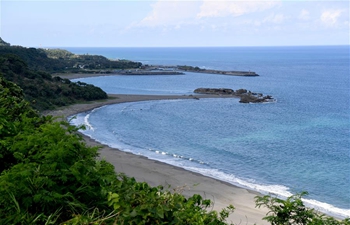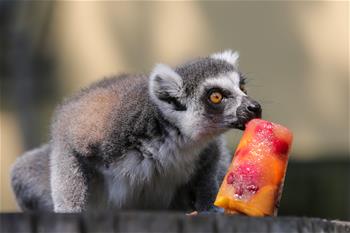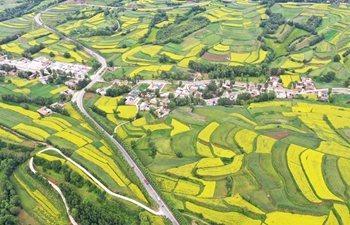by Raul Menchaca
HAVANA, June 29 (Xinhua) -- Cuban farmers are catching up with the burgeoning organic food craze, hoping to benefit from the global movement away from chemically-treated or genetically-modified products.
The Frank Pais agricultural cooperative, which gathers more than 400 producers and 115 farms in Guira de Melena in Artemisa Province, about 50 km south of Cuba's capital Havana, has successfully embraced organic agricultural methods.
Although the cooperative's 1,000-hectare land is not of the best quality, growers have achieved high-level production nationwide, producing some 15,000 tons a year of root vegetables, green vegetables, grains and fruit, as well as dairy and meats.
"The land is good, if the man is good," said president of the cooperative Pablo Orlando Perez, an agronomist known to the locals as Landy.
Frank Pais annually produces about 42,000 liters of milk, 12 tons of beef and 120 tons of pork, which are mostly sold to Cuba's Ministry of Agriculture.
Starting in 2013, the cooperative also began to cooperate with the Ministry of Tourism, supplying fresh produce to hotels in Varadero and Cayo Largo, two renowned resorts in the Caribbean.
"For six years, we have sold more than 5 million pesos (5 million U.S. dollars) a year to the tourism sector and that has helped us prepare for exporting," said Landy.
Julian Leal, one of the top producers at the cooperative, who inherited some 20-hectare land from his father, is preparing to plant peppers and have the products certified as organic food for export.
"We are preparing the soil to obtain certification to guarantee that the harvest is obtained in an organic and ecological way," said Leal.
Given his success in commercial agriculture, Leal got support from the United Nations Development Program (UNDP) and its initiative Environmental Foundations for Local Food Sustainability, which provided him with equipment, such as water systems and a biodigester to treat organic waste.
The cooperative also hopes to increase exports of marmalade produced by a local plant with 15 workers, which each day processes 12.5 tons of mango, guava, tomato and other crops bought from the cooperative.
The plant contains a small processing facility installed four years ago through the UNDP initiative.
The export-quality marmalade is currently sold to some 50 state-run agencies and may be shipped abroad soon to help generate much-needed foreign revenues for Cuba's cash-strapped government.













